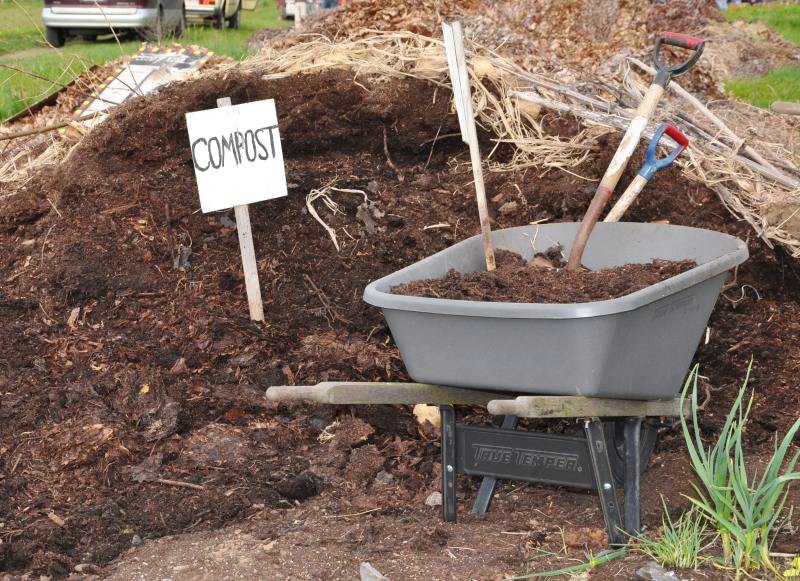Every gardener needs to know what compost is and how to make their own compost. Compost is a mixture of various organic wastes processed by microorganisms which plants use as fertilizer. Mature compost contains an average of 0,35% nitrogen, 0.20% phosphorus, 0.25% potassium, 2-3% calcium oxide. All kinds, however, have one thing in common – the process of humification is always completed, so their organic matter is humus.
The materials used for composting are:
- difficult degradable substances (bones, feathers, hair)
- substances that can absorb nutrients and water (soil, sludge)
- substances that cause decay (lime, faeces).


In fact, any organic material can be composted, and those that are less fit can be shredded. However, there are substances that can not be used – those are the ones that do not decompose, which adversely affect the operation of the microorganisms, have a negative effect on soil fertility, are toxic to plants and harmful to humans (plastic, glass, metal …).
Compost is favorable for the development of viruses, parasites and pathogens, therefore, it should be warm enough to activate only the thermophilic microbes. At a temperature of 65-75 ° C most die. Compost requires conditions conducive to growth and development of microorganisms, a process that can be aerobic and anaerobic.
If the chemical material is poor in nutrients, it should be added. It is mostly nitrogen, potassium and phosphorus. Water is important for all processes, making compost is no exception. That means that the compost should be continuously maintained moist in order to accelerate the process of decay.


The preparation of compost is very simple:
You must make a hole where the compost will be made – first you should put a layer of clay, then a layer of organic waste and this is the first layer on which 10 cm layer of soil is placed. Continue like this until the pile has reached the desired height. Then, cover the resulting pile with plastic wrap in which you will make holes.
Over the next few weeks you can add other organic waste and stir.
If you want to speed up the process of decay for 3-4 weeks, you can add mineral fertilizer. For the compost to be completely mature, it takes 6-20 months (depending on the material you used). In average, if you start the process in the fall, you will be pleasantly surprised by the quality by the next spring.




